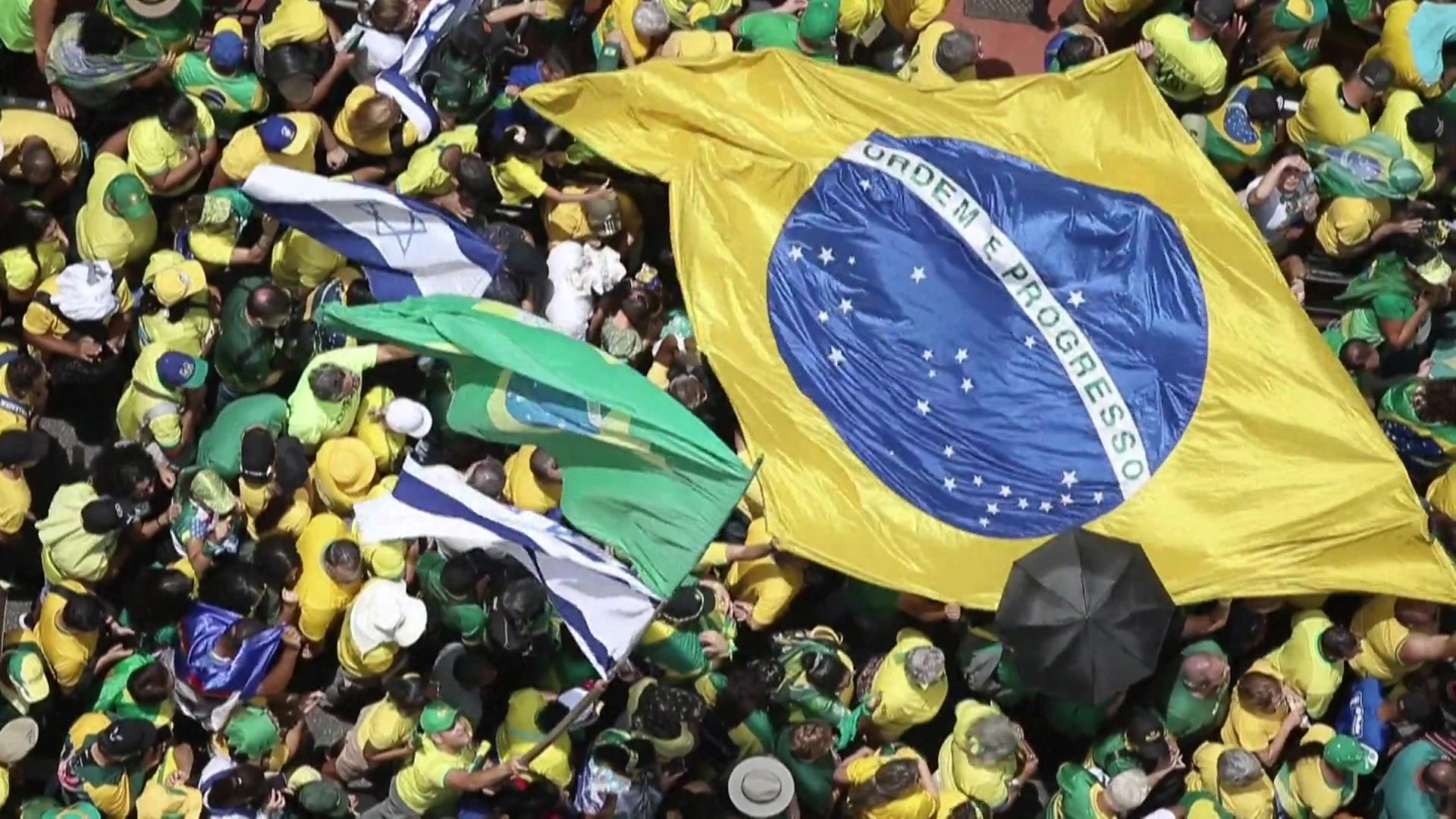Brazilian Authorities Indict Bolsonaro and 36 Others for Alleged Coup Plot
Brazil’s Federal Police announced formal accusations against former President Jair Bolsonaro and 36 of his associates for conspiring to undermine the government and disrupt the democratic process. This multi-faceted conspiracy, detailed in an 884-page report, has ignited a political storm that continues to reverberate across Brazil.
The indictments stem from a comprehensive investigation that alleged efforts to subvert democracy in Brazil. Authorities contend that the plan involved a systematic approach to discredit the electoral system and retain power through illegal measures. The report highlights key strategies that were purportedly employed by Bolsonaro and his allies to achieve their goals.
According to the Federal Police, actions aimed at undermining the integrity of Brazil’s electronic voting system began as early as 2019 during Bolsonaro’s presidency. However, these efforts intensified significantly during the 2022 election campaign. Supporters of Bolsonaro formed “digital militias,” utilizing thousands of social media accounts to propagate conspiracy theories and unfounded allegations of fraud.
Bolsonaro himself played a central role in proliferating these narratives, publicly asserting vulnerabilities within the voting system and expressing admiration for Brazil’s past military dictatorship, which he claimed had saved the nation from communism. This messaging fostered widespread street demonstrations and encouraged protests outside military headquarters, thereby pressuring the armed forces to intervene in the political process. Just three months before the election, Bolsonaro hosted a controversial meeting with diplomats to advance baseless allegations concerning the electoral system’s reliability.
Following his defeat to Luiz Inácio Lula da Silva, Bolsonaro’s political party lodged challenges against the election results, claiming that certain voting devices may have facilitated fraud. The tribunal dismissed these claims, characterizing them as groundless, and the police report suggests that these maneuvers served as a pretext for drafting a decree aimed at annulling the election results.
Investigators uncovered a draft decree in January 2023 at the residence of Anderson Torres, Bolsonaro’s former justice minister. This unsigned document was allegedly intended to lend credence to allegations of electoral fraud and was purportedly presented to military officials in December 2022 as part of Bolsonaro’s broader strategy to garner their support.
The document proposed forming an investigative committee to examine claims of fraud in the October 2022 election, with intentions of suspending the electoral court’s authority and possibly calling for new elections. Reports indicated that while the Navy commander exhibited willingness to comply, both the Army and Air Force leaders ultimately declined. Legal experts view the discovery of this draft as a significant piece of evidence, underscoring a clear intent to disrupt legitimate electoral processes.
In response to the allegations, Bolsonaro has firmly denied plotting a coup, arguing that exploring “state of emergency” measures is within constitutional rights and claiming his actions have been misrepresented.
In a shocking turn of events, Brazilian authorities arrested five individuals in 2022 on suspicion of plotting an assassination targeting Lula, his running mate Geraldo Alckmin, and Supreme Court Justice Alexandre de Moraes. Among those detained were four members of the army’s special forces and a federal police officer. Investigators suggest that the objective of this sinister plot was to incapacitate Lula’s political prospects, allowing Bolsonaro to reclaim power by default.
Justice de Moraes was allegedly targeted due to his crusading efforts against far-right misinformation and his pivotal role in the electoral process, having declared Bolsonaro ineligible to run until 2030. Notably, former General Walter Braga Netto, who served as Bolsonaro’s running mate in 2022, is accused of endorsing the assassination plan and pressuring military officials in support of the coup. Braga Netto has denied any involvement, asserting that materials seized by authorities were merely preparatory documents for future congressional inquiries.
While investigators found no evidence that the assassination plot advanced beyond the planning stages, they did uncover reports suggesting that the suspects monitored de Moraes’s movements in preparation for potential action.
The investigative report further links Bolsonaro and his close associates to the January 8, 2023 siege on government buildings in Brasília. During this unprecedented attack, thousands of Bolsonaro supporters stormed the nation’s Supreme Court, Congress, and the presidential palace. Many of the rioters had camped outside military installations for months, urging military leaders to prevent Lula’s inauguration and restore Bolsonaro to the presidency.
Federal Police describe the January 8 riot as a culmination of ongoing efforts to coerce military support for the purported coup. In a notable revelation, a November 2022 message from Brigadier General Mário Fernandes to Army Commander General Marco Antônio Freire Gomes emphasized the military’s pivotal role in overcoming what Bolsonaro’s supporters framed as a “threat” to national order.
The unfolding scandal surrounding Bolsonaro and his associates has profound implications for Brazil’s political landscape. As investigations continue, the accusations have sparked national and international outrage, leading to heightened tensions within Brazil. The potential ramifications for Brazilian democracy could be significant, threatening to erode public trust in the electoral system and further polarizing an increasingly divided society.
Overview of Allegations
Key Elements of the Alleged Coup Plot
Undermining Trust in Brazil’s Electoral System
Drafting a Decree to Carry Out the Coup
Alleged Assassination Plot
Connection to January 8 Capitol Attack
The Wider Implications
